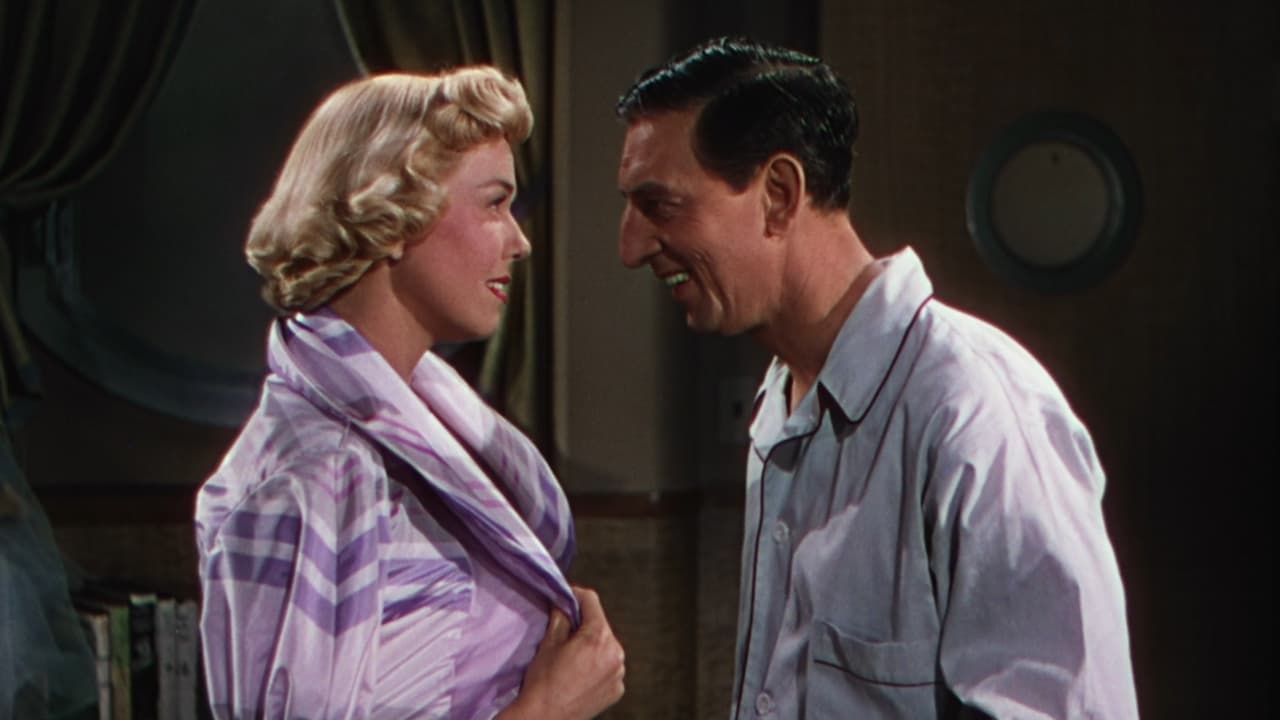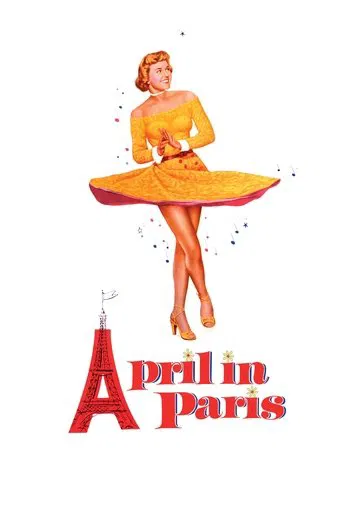

Plot so thin, it passes unnoticed.
... View MoreI enjoyed watching this film and would recommend other to give it a try , (as I am) but this movie, although enjoyable to watch due to the better than average acting fails to add anything new to its storyline that is all too familiar to these types of movies.
... View MoreThe movie turns out to be a little better than the average. Starting from a romantic formula often seen in the cinema, it ends in the most predictable (and somewhat bland) way.
... View MoreThe joyful confection is coated in a sparkly gloss, bright enough to gleam from the darkest, most cynical corners.
... View MoreCopyright 3 December 1952 by Warner Bros Pictures, Inc. New York opening at the Paramount: 24 December 1952. U.S. release: 3 January 1953. U.K. release: 6 April 1953. Australian release: 29 April 1953. Sydney opening at the Regent. 9,057 feet, 100 minutes. NOTES: Number 42 at Australian ticket windows for 1953. While the film itself did not break into the ranks of the top thirty domestic box-office champions, Doris Day herself was voted number 7 of the nation's money-making stars of 1952 in a poll of all U.S. exhibitors conducted by The Motion Picture Herald. Ray Bolger was often berated by director Butler during shooting for his efforts to crowd Doris Day. Why the egotistic Bolger should try these tricks to overshadow his co-star is a mystery. He is extremely well treated throughout and often seems to be enjoying an undisputed lead. He even has an elaborate special effects solo in which he dances with himself as both a costumed Washington and Grant. COMMENT: Just because a movie was popular in all sections of the community (the carriage trade, the middle classes, the workers), doesn't mean critics have to look for faults. April in Paris far from deserves its so-so critical reputation. For at least three-quarters of the way through, the dialogue is not only bright and snappy with fast, witty comebacks, but even amusingly risqué. It's true the fountain runs a bit dry towards the close, and is therefore replaced by unlikely farce, but even this comparative wasteland is enlivened by a delightfully photographed production number for Doris Day. As for the songs, though they seemed no more than mildly pleasant at the time, they have improved with repetition. What's more, they're colorfully staged. Bolger's comic dancing, lithe and superbly timed, is such a joy, so cleverly choreographed in fact, one wishes there were more. Miss Day herself is a gem, whilst Dauphin makes the ideal spoof of a Frenchman. It all just goes to show how spoilt we were back in 1953. A film as pacy, as superbly photographed and never mind the expense, with the occasional inventive bit of direction, would cause a sensation if newly released today. (And some of the dialogue, amazingly frank for 1952, would also seem right at home).
... View MoreExceedingly thin Warner Bros. musical, blanketed in tacky lustre and stock footage, involves an inept assistant's assistant in Washington, D.C. who is in charge of sending out the invites to attend a Theatre Arts Festival in Paris, France; somehow, an invitation meant for Ethel Barrymore is sent instead to a chorus girl named Ethel Jackson (nicknamed "Dynamite", though we are never told why). The dancer is promptly uninvited, and then re-invited, by the assistant, who falls in love with her on the ship sailing to Europe. Doris Day, perky as ever, is delightful in her early scenes celebrating with her chorus friends and with the shipboard kitchen crew ("Don't stop!" she tells the fellas, "I'm tickin'!"). Unfortunately, she has to contend with rubber-faced, bug-eyed Ray Bolger in the romance department, and it's all Miss Day can do to keep her spirits up. Bolger never found stardom in the movies sans his Scarecrow character; he does a very fine solo dance routine early on, but otherwise comes across as a joyless sourpuss, snapping at underlings and mugging at the camera (no gentleman would ever try to upstage Doris Day!). Doris sings the title song very prettily, but the other tunes are fairly forgettable. As for the happy ending, I can only hope the filmmakers were joking and that Day's "Dynamite" Jackson lures a replacement suitor aboard the ship heading back to the U.S.A. ** from ****
... View MoreI watched this movie last night for the first time and really liked it. It is a wholesome movie with song and dancing and wonderful costumes. I thought the comedy was great and could be enjoyed by the entire family. The movie had good values. I absolutely loved the dress Doris Day had on in scene on the ship, the color, fabrics, and style were magnificent. I never really watched many Doris Day movies, but I have to say she really comes off as "the girl next door" in this movie. I was reminded in many scenes of Ray Bolgers previous acting in the Wizard of Oz, and that would be the only negative I could find for the movie. Not sure why this movie has such a low rating, but I would recommend this movie to everyone.
... View MoreSorry folks, I love Ray Bolger's work but the one thing he ain't is a leading man. Maybe if you pretend he's the last man on earth, this romantic plot might work but come'on now !Here's a movie that exists simply to showcase the title song which was a big hit for the Basie Band the year before (1951). And some pretty nifty singing and dancing save it from being a total disaster. However, the story line is pathetic, even by 1952 musical comedy standards. And the other songs are equally as forgettable as Evening In Paris cologne. The dialogue embarrasses the stars, Day & Bolger. Only Claude Dauphin's Boyeresque charms keep his character three dimensional.So, how to enjoy this movie on video ? A.) Fast forward through all the dialogue...B.) Surrender yourself to Doris Day's vocals and Ray Bolger's loose-limbed footwork. And don't miss Dauphin's hilarious take on a rain-soaked, windswept reprise of "April In Paris"...C.) Finally, keep a couple of bottles of Cabernet chilled and handy.Bob Raymond
... View More